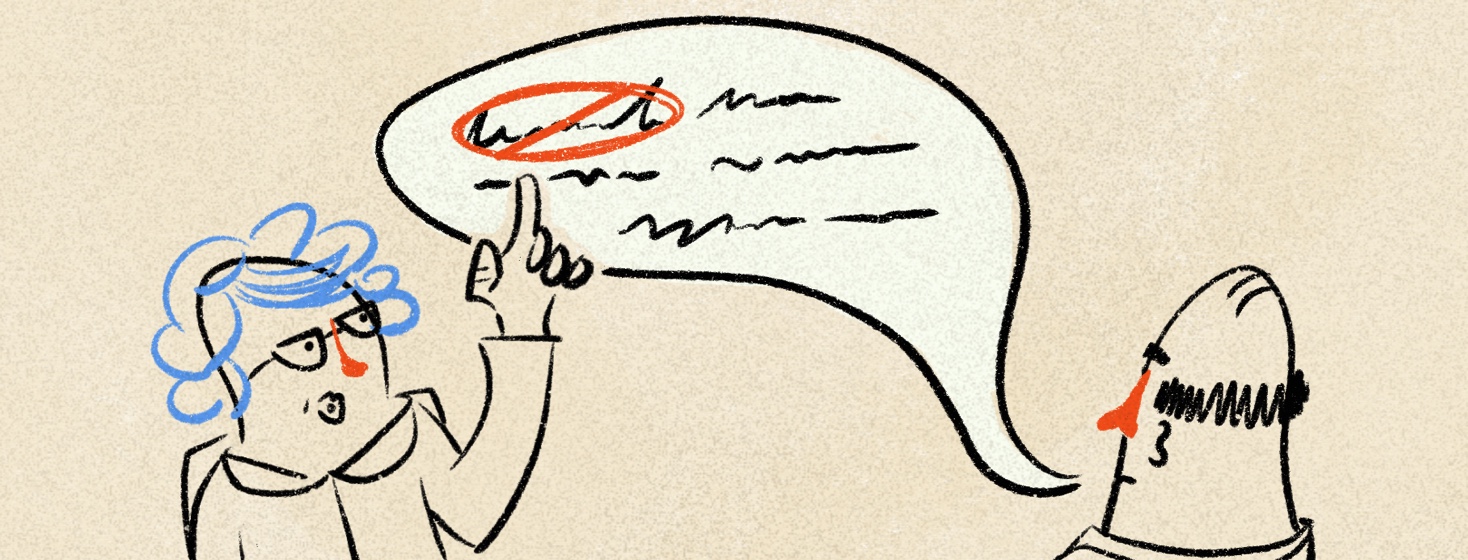Terms to Banish From Your Vocabulary Now
When my loved ones were diagnosed with schizophrenia disorder, no one had to tell me it was one of the most stigmatized conditions, and I worried a lot about how other people would see them.
I want my loved ones to be welcomed and accepted in their communities, not just among other neurodivergent people, but also in grocery stores and parks and churches, in school and the workplace and social clubs, and everywhere else people gather.
Stigmatizing language and schizophrenia
Like me, you've probably experienced hurtful and inaccurate representations of people with schizophrenia in movies and books and talk shows, and heard cruel comments, jokes, and offhand remarks about them from others, sometimes even our own families.
Some of us have used "high-functioning" or "well-presenting" to describe our loved ones, hoping these terms will smooth the way to acceptance from others or grant them access to spaces where we fear they'll face rejection.
But even if it works, this kind of language risks damaging the schizophrenia community as a whole and our loved ones as individuals.
What does this kind of language do?
Minimize our loved ones' struggles
Even when our loved ones appear to be doing fine, they may be facing internal challenges or experiencing distress due to the symptoms of their disorder. My daughter Sally has shared with me that there were times when she appeared to be fully participating in conversations but was unable to focus on what people were saying due to her anxiety.
Invite accusations
Accusations of exaggerating or "faking" for attention are harmful. The simple truth is that no one can tell what another person is experiencing just by looking at them. People with schizoaffective disorders face the cruel paradox of a society that punishes behavior outside the narrow definition of "normal" or neurotypical, but question those who don't fit their stereotypical notions of what the disorder "should" look like.
Suggest who is "better" vs. "less than"
We shouldn't suggest that those with more severe symptoms are less worthy. These labels suggest a hierarchy in which people with fewer or less severe visible symptoms are better or more deserving than others with the disease. This is extremely dangerous in a society that has othered people with schizophrenia to the point of considering them sub-human, locking them out of view, depriving them of justice and subjecting them to tortuous conditions.
Threaten the support our loved ones need and deserve
When we use terms that diminish our loved ones' struggles, they are less likely to receive the support and accommodations they deserve by law. Sally has shared with me the difficulty of receiving workplace accommodations when human resources staff questioned whether she truly needed them because her disability was rarely visible.
Promote and perpetuate masking behavior
This last one is often overlooked, but the damaging effects of masking – performing wellness as defined by neurotypical people – are profound. When I mask my ADHD and social anxiety, something I have done nearly my entire life, I am denying my own identity – literally dissociating from my core self. I can empathize with the exhaustion and despair experienced by those in the schizophrenia community who feel compelled to mask their own symptoms.
So how should we talk about schizophrenia?
So what are some good alternatives? Asking a loved one what language and terms they prefer is always a good place to start. It's important to remember that language is organic and changing, particularly around marginalized communities, and we must all be compassionate with each other as we learn and change and adapt.
I myself have used stigmatizing language times countless times, often without knowing it. Admitting that reduces my shame and makes me more receptive to change.
Person-centered language and avoiding judgement
Rather than focus on specific terms, I try to follow practices that make sense when talking with or about any member of a marginalized community: validating their experiences, using person-centered language, and asking for more information when I'm unsure.
When others ask me about Sally, I might say that she is "living with" her mental health condition, but focus on the many other facets of her life separate from it.
When discussing visible symptoms with loved ones, I try to avoid judgements and ask my loved one about their experience of the symptom and how I can support them. If a symptom isn't bothering them, I try not to let it bother me.
Changing my language (and my perspective)
Over time I've learned that the most impactful change I can make is in my vocabulary.
For instance, if I redefine what it means to lead a fulfilling life, or change my thinking around the value of "normalcy," my language will naturally evolve to reflect and honor the dignity my loved ones deserve.
